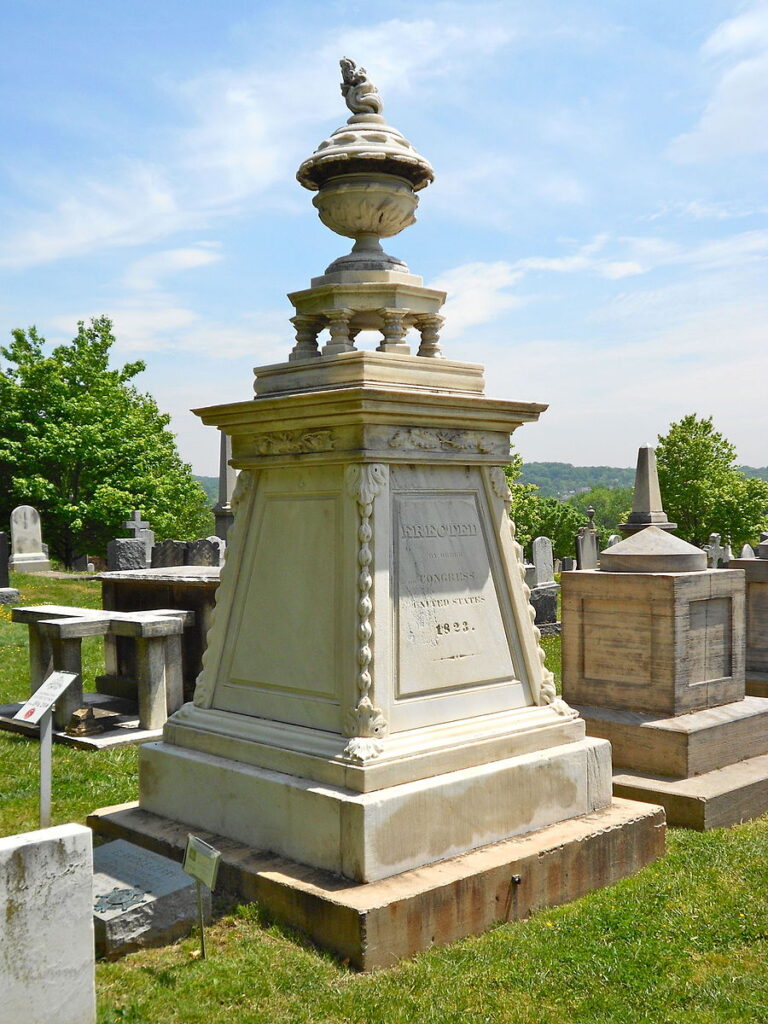Erik Visits an American Grave, Part 105
This is the grave of Elbridge Gerry.
Born in 1744 in Marblehead, Massachusetts, Gerry grew up in a Massachusetts elite merchant family. He gradated from Harvard in 1762 and received an M.A. from the same institution in 1765. He was an early supporter of anti-British sentiment, working with Sam Adams, John Hancock, and others by 1770. He used his business contacts to help fund the American Revolution, served in the Second Continental Congress, and supported the Declaration of Independence. He served at the Constitutional Convention in 1787 and to his credit strongly opposed the Three-Fifths Compromise. He actually was only of only 3 delegates to vote against the Constitution as it was written, fearing the lack of individual liberties in the proposed government. He fought hard for the Bill of Rights to amend the flawed document, especially the inclusion of freedom of assembly in the First Amendment and for the Fourth Amendment. He really tried to stay away from the developing political party system after the Revolution, holding very strongly the antipathy to political parties common among the Founders. He supported Alexander Hamilton’s financial plans but disliked the monarchical inclinations of the man and his supporters. He was chosen by John Adams to be a representative to France in what became known as the XYZ Affair because he was so known for his impartiality. Finally, in 1800, he joined the Democratic-Republicans as a response to his discomfort with Federalist centralization of power and because Federalist partisans had attacked him over his role in the XYZ Affair, claiming he was pro-French, which was proven not true when he published his correspondence with Talleyrand. He then served as governor of Massachusetts for a couple of years.
But let’s quit beating around the bush. There is one reason why Gerry is important today, and that is what became known as gerrymandering. The overall connection to him for this is a bit unfair. He was governor in 1812 and the state legislature adopted new electoral boundaries that were highly partisan. He signed the bill. Federalists protesting their exclusion from power called it “gerrymandering” and the term stuck. It also contributed to his defeat for reelection in 1812. No matter, as James Madison chose him to be Vice-President. He served in that role until 1814, when he died.
In conclusion, this fellow’s signing of that 1812 bill has caused us no problems in the present.
Elbridge Gerry is buried in Congressional Cemetery, Washington, D.C.

